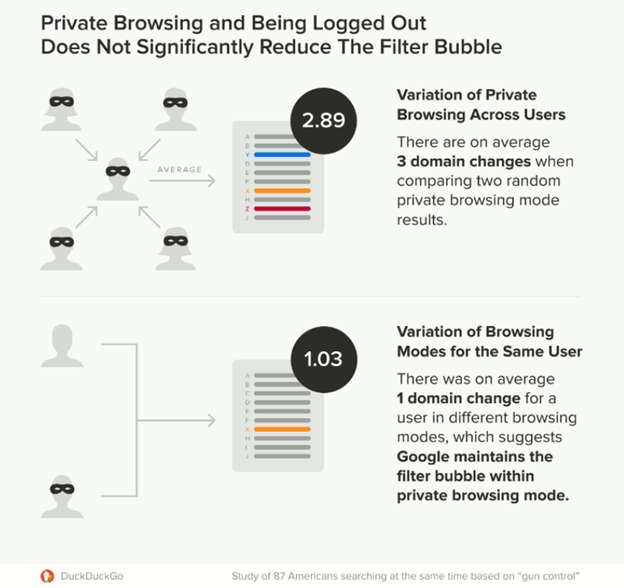It's Time to Get WISE.
A quick, honest call to assess your needs and point you in the right direction—no sales pitch. Best suited for:
- Established businesses with a defined marketing budget
- Businesses prepared to grow and scale
A deep dive with a top expert to uncover gaps and map a smarter path forward.
- Includes a $250 digital audit covering your website, SEO, local presence, and online performance—yours to keep.
- Get smart, actionable ideas you can apply to your business right away.

Enter the email you would like your guide sent to:

Enter the email you would like your guide sent to:
Apply Today
Please fill out the information below. Someone on our team will reach out in 3-5 business days to schedule a call if we see a good fit.
Book Patrick Dillon
Thanks for your interest in booking WISE CEO Patrick Dillon on your podcast! Please complete the form below, and a team member will contact you shortly.

Remove Negative Reviews.

Think no one can track what you’re doing while browsing the internet “incognito”? Think again. Learn more about Incognito Mode and how it affects search results displayed to you.
What is Incognito?
Incognito is a browser mode in Google Chrome where information such as browsing history, cookies, and what’s typed into forms is not retained. Most major browsers, such as Microsoft Edge, Mozilla, Firefox, and Safari, also offer private browsing similar to Incognito. You might think that translates to “privacy,” but there’s some important fine print that’s easy to miss.
Your activity might still be visible to your employer, the school you attend, your internet service provider (ISP), and other websites you visit—and that list is hardly exhaustive.
Incognito mode is not as secure and private as you might think, and there are very few browsers or software that can truly make you anonymous. You might be surprised, for example, by what you see when you take Nothing Private’s quick “Are you anonymous?” test.
What About Google Search Results?
There are two misconceptions about Google search results when in incognito:
- Google shows the same results to everyone when they’re in incognito mode.
- There’s no proof Google has a “filter bubble” that influences search results.
DuckDuckGo’s Filter Bubble Study
filter bubble
(noun)
An environment and especially an online environment in which people are exposed only to opinions and information that conform to their existing beliefs – Merriam Webster
In 2018, privacy browser DuckDuckGo conducted a study to measure how Google might influence people with its search results by creating filter bubbles. These were the parameters:
- Many people from across the U.S. were included in the study
- The test was conducted simultaneously for all participants
- Varying browsers and devices were tested
- Participants were instructed to log out of everything, enter incognito (or private mode) in their browser, and then search for highly controversial political topics such as gun control, immigration, and vaccinations
The participants took screenshots and answered questions for the study, such as:
- Which city and state are you located in?
- Which browser and device are you using?
- Do you use a tracker blocker?
The search results varied widely, making it clear that Google algorithms were at play even in incognito mode.
Google’s Response to DuckDuckGo’s Study
Google responded with a long thread on Twitter under their @Google SearchLiason handle. Let’s dissect some of that response:
“This study’s methodology and conclusions are flawed since they are based on the assumption that any difference in the search results are based on personalization. That is simply not true. In fact, there are a number of factors that can lead to slight differences, including time and location, which this study doesn’t appear to have controlled for effectively.” – Google
I disagree with Google that time and location were not controlled effectively. DuckDuckGo documented all of this information. The time was set the same for everyone, and participants were instructed to log their location for variance in seeing what was shown.
“Anyone who doesn’t want personalization using account-based activity can disable it using the Web & App Activity setting. You can also choose to keep your search history stored but exclude Chrome and app activity…” – Google
According to Google, participants were in incognito mode, which should have been the way to opt out of personalization. However, the search results mostly varied for each participant with no explanation why. Here’s a further response from Google:
“One of the most common reasons results may differ between people involves localized results, when listings are customized to be relevant for anyone in a particular area. Localization isn’t personalization because everyone in the same location gets the same results…” – Google
“Results may also differ slightly because of how dynamic & distributed our search system is. Our various data centers are constantly being updated with the latest information we have gathered from trillions of pages, along with our latest ranking improvements.” – Google
“While we make changes as simultaneous as possible, some new or changed pages might not appear in all data centers immediately, or our latest ranking improvements may not have fully rolled out. These factors, not personalization, can create slight or brief differences in results…” – Google
“Time is also a factor. Those who search a few hours or even minutes apart may see variations as new & updated material is added to our search engine. In particular, our “Top stories” section, which is never personalized, can change significantly in a short period of time…” – Google
Regarding the time, the study shows the tests were completed within at least a minute of each other, at least for the first instance participants performed a search. So Google’s response doesn’t exactly rebuttal DuckDuckGo’s findings.
“Results may also differ slightly because of platform. On mobile, we prefer fast-loading, mobile-friendly pages, if content on those is as good or better than desktop versions. If you’re using Android or iOS, we may list apps that are appropriate for the respective devices.” – Google
Google is stating that it knows if you’re on mobile or desktop and will cater results accordingly. We did see in the study’s results that the participants used a wide variety of platforms, some were on mobile devices and others on the desktop. There may have also been tablets as well.
The Data From DuckDuckGo’s Study Raises Questions
When 87 people searched Google for “gun control” simultaneously across the U.S. in private browsing mode, DuckDuckGo saw 19 domains ordered 31 ways. Wouldn’t more sites be showing if the location was as big a factor as Google states? This proves that Google is showing people different results in incognito.
Also, look at the data in the screenshot below from DuckDuckGo’s study. How is it possible that when you’re going into private browsing, you have maybe one domain change when you’ve gone from normal browsing to Incognito?

The parameters for the test were quite thorough, and Google ignored vital points that the study brought up.
The study revealed that incognito didn’t bring up the same results for everyone and that even when Google was showing the same websites to people, the order they were listed was not the same.
Suppose Google truly stands by its statement that it will show different results to people in incognito based on their device, IP/physical location. Why were there not far more unique results for people around the country? Is this because Google uses a filter bubble, as DuckDuckGo believes?
Even if Google is telling the truth about how they display results, the company has never publicly proven its claims about not having a filter bubble.
We cannot trust any search engine results to reflect accurate rankings by using incognito or standard search in browsers because it’s clear that search results vary from user to user.
So How Can Anyone Determine How Their Website is Ranking?
Here’s how WISE Digital Partners helps determine clients’ rankings without personalization.
Smart Software
We use industry-grade SEO software that pulls organic ranking data without personalization, which returns the most accurate/real results possible.
No Cookies
Our tools do not have browser data, cookies, or any existing geographical data that might result in a filter bubble. This allows for precise analysis. No guessing here!
Geographical Analysis
We can perform research on a city-by-city, state-by-state, and even country-by-country basis, allowing targeted research to reveal exactly how Google ranks you.
This combination of smart software, no cookies, and tools with no search data or preferences assigned to them by Google allows us to look anywhere to find keyword rankings and see how your business appears to Google. It’s phenomenal, and our clients love it.
Get a Free Consultation
Contact us for a free consultation if you’re interested in gaining the upper hand with your SEO and other digital marketing efforts such as paid advertising, brand identity, email marketing, and more.
Share
Subscribe to WISE Insights
Stay ahead of the digital marketing curve and never miss a lucrative trend or insightful tidbit – subscribe to our WISE blog!
Keep Reading
Build. Grow. Soar.
Get WISE about digital marketing with advanced services, industry experts, and cutting-edge tools designed for long-term, sustainable growth.







